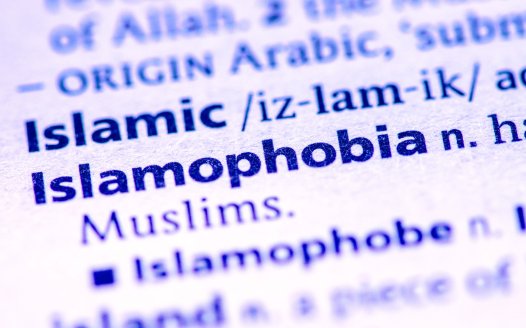46% in England support legal limits on free speech where religion is concerned, poll finds
Posted: Tue, 15th Mar 2016
A new report on identity and immigration has found that nearly half of England's population support legal limits on free speech when religion is concerned, and that support for freedom of expression has fallen significantly since 2011.
A poll of 4,015 people conducted by Populus for the Fear and HOPE 2016 report found that only 54% agreed people should be "allowed" to say what they believe about religion. 46% said there "some things" that you should "not be able to say about religion". Participants were asked to signal which of two statements on free speech and religion they agreed with "the most".
In 2011 just 40% agreed that some statements about religion were off-limits, compared with 60% who agreed that "people should be allowed to say what they believe about religion".
The report, on English attitudes towards identity, multiculturalism, religion and immigration, and written by Professor Robert Ford of Manchester University and Nick Lowles of Hope Not Hate, found that the marked increase since 2011 in those who agree that there should be "some things that people should not be able to say about religion" was being driven by the young and those most supportive of multiculturalism.
The research broke society down into different groups depending on their attitude to multiculturalism and diversity. Those who were considered to be "mainstream liberals" were the most likely of all groups to support restrictions on free speech. 58% of this group agreed that "if necessary" people "should be prosecuted" for saying certain things about religion.
The authors of the report found that "support for limiting free speech to respect multicultural sensitivities had grown over the past five years".
Limiting free speech is most popular among "the young" and among those most "confident" with multiculturalism. 58% of under 25s "back similar limits on religion" as exist for policing racial hate.
Stephen Evans, National Secular Society campaigns manager, said the report made for "grim reading".
"This report demonstrates how the concept of offense, and the violence that sometimes accompanies it, has created a chilling effect on freedom of expression in the UK. Whilst bigotry of all kinds should be robustly challenged, now is not the time to start sacrificing fundamental freedoms in order to protect 'religious sentiments'. Restricting free speech will do nothing to improve social cohesion – and once satisfied, demands to 'respect' religion will only lead to yet further demands.
"Stringent penalties are in place for religiously-aggravated crimes but the law is not there to prevent us from feeling offended. Free speech is the cornerstone of democratic life any new legal restrictions would be counterproductive, only serving to stifle debate and erode hard-won civil liberties."
The report explored attitudes to a wide range of issues related to immigration, identity and social cohesion, and found clear majorities in support of the "close monitoring of faith schools". 71% of England's population support the "close monitoring of faith schools, including Muslim faith schools", and 50% of Muslims polled agreed with the proposition.
Islam was regarded as a uniquely problematic minority faith by many, with 59% believing "Islam poses a serious threat to Western civilisation". 17% of Muslims polled by Populus for the report agreed with this statement.
43% of English respondents said that Muslims were "completely different" to them – and 59% "believe they cause problems in the world". Despite this, the authors note, "concern about problems caused by Muslims and other religious groups is much lower to now than it was in 2011." 78% of English people agreed that "it would be wrong to blame an entire religion for the actions of a few extremists".
The National Secular Society is supporting #Right2Debate, the student campaign to reclaim freedom of speech on campuses.







